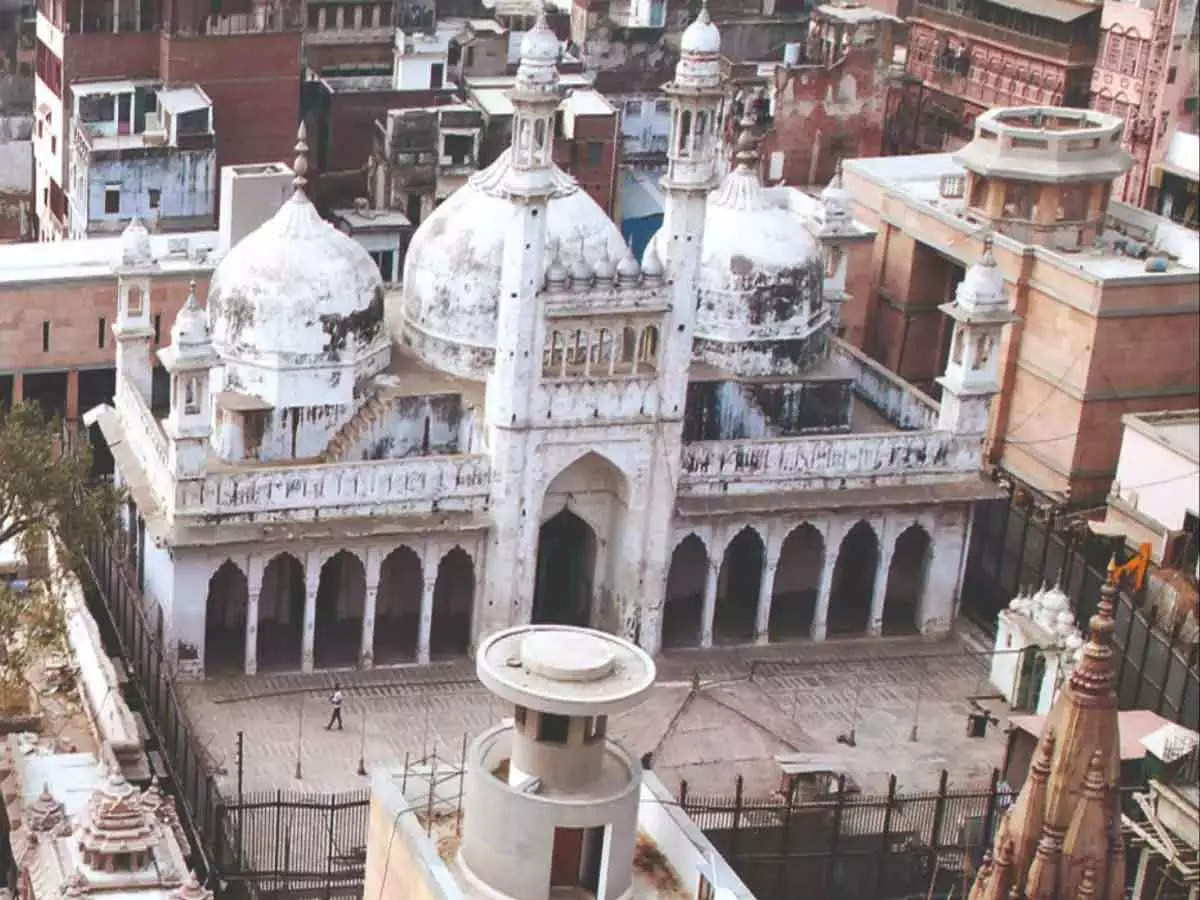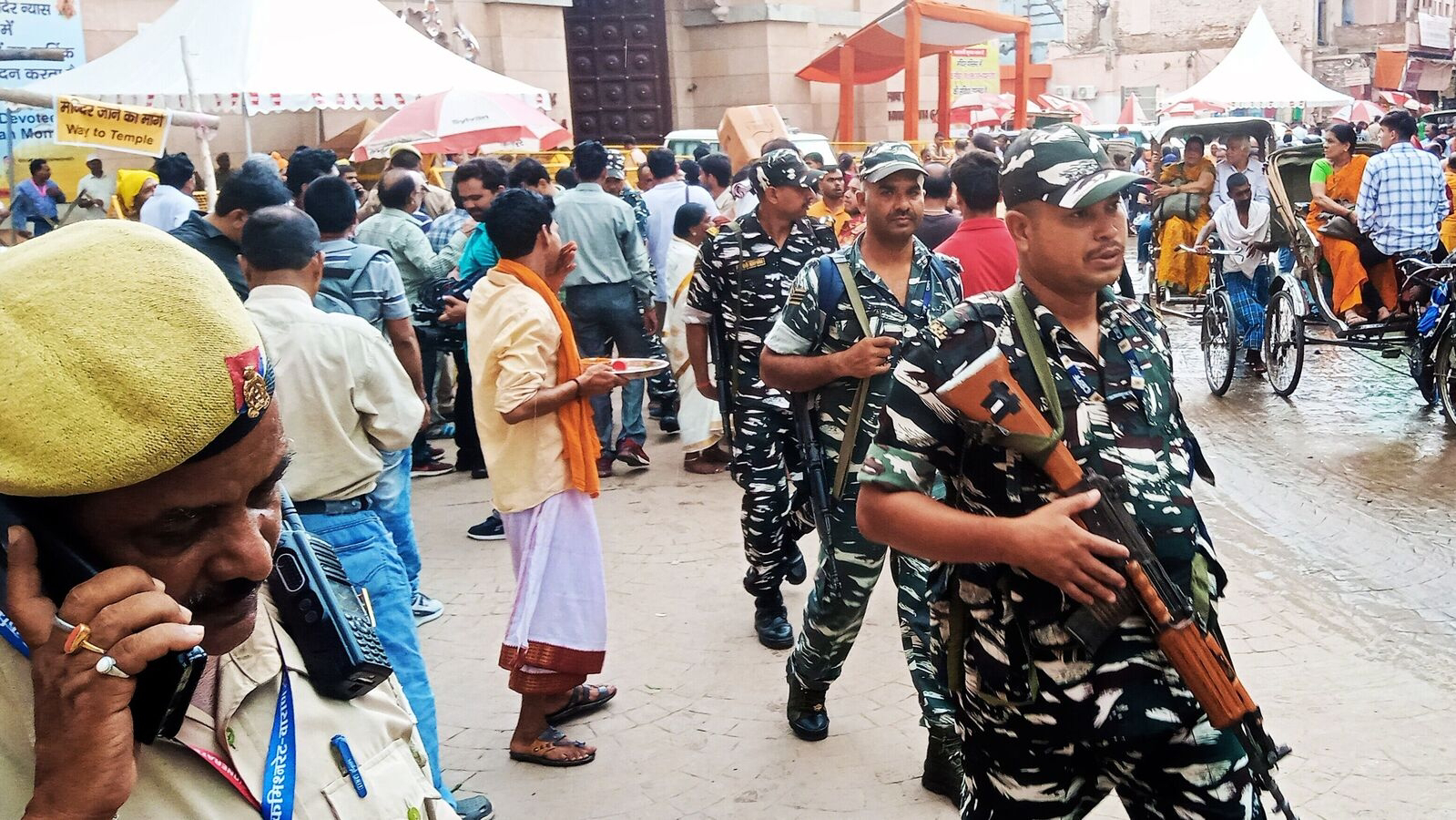Amidst tight security measures, on Saturday morning at 8 am, a team from the Archaeological Survey of India (ASI) entered the Gyanvapi complex in Varanasi to conduct a survey. ASI's four teams worked in two phases during the survey, while the Muslim side remained present during the survey after the petition was dismissed by the Supreme Court.
Following the green signal from both the High Court and the Supreme Court, the ASI commenced its survey of the renowned Gyanvapi complex in Varanasi. The survey process was completed on the second day. On the second day, the ASI team focused on mapping. Additionally, they conducted videography and photography within the Vyas Ji's underground chambers, using 3D imaging as well.
During the second day's activities, the Mosque Committee was also present. The area within a one-kilometer radius of the Gyanvapi complex was cordoned off during this period. The survey took approximately one and a half hours on Friday and around five hours on the previous day. Amidst tight security measures, the ASI team reached gate number four of the Kashi Vishwanath Dham at 8 am on Saturday.
The four teams of ASI meticulously surveyed every nook and corner of the Gyanvapi complex, ensuring compliance with security standards before sending the survey team into the complex. The survey was paused for one hour during the afternoon prayer, during which the survey team had their lunch. At 3 pm, the survey resumed, and representatives from both sides entered the underground chambers.
Before this, the four teams had surveyed the Gyanvapi Hall, underground chambers, western wall, and the outer wall. They also conducted measurements and gathered evidence from the walls and their surroundings. Now, the entire complex needs to be surveyed, excluding the Vajukhane. Both the Muslim side and the local advocates expressed their satisfaction with the scientific approach adopted by the ASI team during the survey.
After exiting the Gyanvapi complex, the Hindu side claimed to have found remnants of statues in Vyas Ji's underground chambers. The ASI is conducting a detailed study with utmost precision. The Muslim side is actively cooperating with the survey, and a specialized team of experts is deployed to survey the western wall. This survey differs significantly from the Commissionerate's actions and is comprehensive, following scientific methods.
Due to the ongoing survey at Gyanvapi, there has been a decrease in the number of devotees coming for darshan and worship at the Shri Kashi Vishwanath Dham. Sellers of garlands and flowers outside the Vishwanath Dham mentioned that the number of visiting devotees from outside has reduced in the last two days. However, the local devotees' count remains lower than usual due to the security measures, which may be the reason for the decline.
Gate number four of Shri Kashi Vishwanath Dham was under the command of the Police Commissionerate, ensuring additional vigilance and continuous patrolling from Godaulia Chowk to Maidagin via Bansphatak, Chowk, and Bulanala. At various points, barricades were placed, allowing only pedestrians with permission to pass. Furthermore, Anti-Terrorist Squads (ATS) commandos were stationed alongside police and soldiers in front of gate number four of Shri Kashi Vishwanath Dham.
The survey at Gyanvapi has garnered significant attention from various quarters, and people are closely monitoring the developments. The authorities have taken utmost precautions to ensure the safety and security of the complex during the survey process. The presence of security personnel, barricades, and vigilant patrolling has been evident throughout the area surrounding the Gyanvapi complex.
Local vendors and shopkeepers have also noticed a decrease in the number of regular devotees visiting the shrine during the survey days. However, there is a sense of understanding among the people that such security measures are necessary to ensure a thorough and unbiased survey. Many locals, while respecting the sensitivity of the issue, are keenly awaiting the results of the survey, which is expected to shed light on the historical and archaeological aspects of the Gyanvapi complex.
Given the significance of Gyanvapi in India's cultural and religious heritage, the survey's findings hold immense importance for the diverse communities connected to the site. The cooperation and understanding displayed by both the Muslim and Hindu sides during the survey process have been noteworthy, signifying the shared goal of preserving the historical and religious heritage of the site.
The involvement of experts from the Archaeological Survey of India in the survey adds credibility to the process. Their use of scientific methods and technologies like 3D imaging has been acknowledged and appreciated by various stakeholders. People are hopeful that the ASI's expertise will help unravel the historical layers of the Gyanvapi complex and contribute to a deeper understanding of its architectural and cultural significance.
While the survey progresses, debates and discussions about the Gyanvapi complex continue to take place in academic circles, media, and public forums. Scholars, historians, and archaeologists are sharing their insights and knowledge, contributing to a broader perspective on the site's historical context. Many eagerly await the final report from the ASI, which is expected to provide a comprehensive analysis of the findings.
As the survey nears its completion, the atmosphere around the Gyanvapi complex remains charged with anticipation and curiosity. People are hopeful that the survey's outcome will bring clarity and foster a spirit of harmony and respect among the various communities with vested interests in the site.
Throughout this process, the focus on maintaining transparency and following scientific methods has been evident, ensuring that the survey stands as an unbiased investigation. The sensitivity surrounding Gyanvapi necessitates a fair and thorough assessment, and the authorities have been striving to uphold these principles during the survey.
In conclusion, the ongoing Gyanvapi survey is a significant event with far-reaching implications for the cultural and religious fabric of India. As the survey concludes, the report is eagerly awaited, and its findings are bound to influence the discourse surrounding the site. The hope is that the survey's outcomes will contribute to a deeper appreciation and understanding of the rich history and heritage that Gyanvapi holds for the nation and its people.






0 Comments